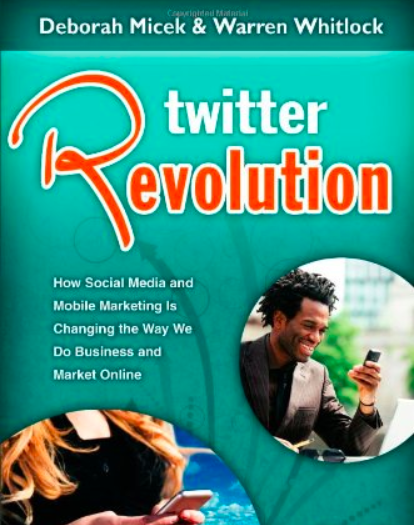
by Sandy | Jan 28, 2018 | MBTI Facts
How can a INFP be successful in marketing?
My coaching mentor Mike Jay, has a keen distaste for a blank slate approach. He finds danger in proposing that anyone can be anything they want to be without taking the time to be explicit about a series of conditions which will allow that to happen based on self understanding and reality about the needs of the situation. His mantra is first know who you are – your preferences, strengths etc. second know what the situation requires and third design an approach that allows you to be in alignment with your personality and yet find the help and resources and the system required to do the job. While this is my simplistic interpretation of Mike’s ideas the core components are consistent with his ideas and practices.
So what does this mean for an INTP in marketing?
I am not a career advisor. I will give you my thoughts based on my knowledge of the MBTI and my years of work for a graphic design firm who were involved in aspects of marketing.
Before I go any further let me point out that the MBTI preferences are only one aspect to look at and even then we do not have the benefit of understanding the distinctions that the Step 2 version of your MBTI results could shine on this career choice.
Different marketing firms have different approaches so if you are interested in working in this field, it may be a good first step to see if the culture of a particular organization is a fit for you. Since INFP’s can be sensitive and need to be in situations that align with their values, it may be of value to spend some time asking what is important about an organization that you work for? What would make that firm an entity you could stand behind?
Another thing that you might want to ask is what kind of future do you want with any marketing firm? You may be able to find an aspect of marketing that is a fit for you and allow you to express your creativity but what about moving up the ladder to more mangerial activities and on to positions where strategic thinking and analysis may become a larger part of the job?
Now to get back to what you were probably asking.
A career in marketing would surely require excellent communication skills including both oral and writing capabilities. INFP’s are assumed to have this capacity – is this true for you? If so can you write clearly, analytically and make persuasive oral presentations? If this is where you shine, can you find work in marketing that allows you to focus on this area of strength?
For some marketing is also about being creative and innovative and adding to that the ability to “walk on the wild side”. Putting new ideas forward may require a certain level of risk taking backed up by enough enthusiasm to sell the idea and carry it through to the end. This may also require being a part of a team. As a person with a preference for Introversion – how do you react to the thought of this kind of team work? Would you be comfortable to step up and deliver your ideas to team members and clients in a compelling way? If not how can you work with others so that someone else is taking on that part of the work?
My final question has to do with INFPs being strongly influenced by their internal value system. There may be times where the client needs and the needs of the marketplace dictate an approach that may not line up with how you see things. Would you be able to step back and make your commitment to the project based on analysis and bottom line business objectives?

by Sandy | Jan 27, 2018 | MBTI Facts
A couple of the questions on the MBTI test are very difficult to answer. I know that you are supposed to go with your first instinct, and that sounds great in theory, but when a question is staring you in the face and you have no idea which way feels stronger to you, what should you do? One or two of the questions stuck with me and took me literally months to decide. I took them very seriously and I wanted to really search inside of myself to see how I felt. I know you can’t do that when you are sitting down to take the test – so what to do and how does that affect the results?
Thank you for bringing this question to the table. This is actually something that I have experienced personally because in some circumstances distinctions are very important.
The purpose of the inventory is to sort people into categories rather than to measure amounts of a particular aspect. The reason for this is that type theory is based on dichotomies – that is to say you sit on one side of the pole for each of the preference pairs. Your preference is for either Extraversion or Introversion, for Sensing or Intuition, for Thinking or Feeling and finally for Judging or Perceiving. Everyone uses both sides of each pole from time to time depending on a number of factors such as context. The inventory is designed using forced-choice questions and this question structure is designed to force one side of the dichotomy to emerge. It also is meant to eliminate (as much as possible) the influence of other factors.
Traits based models of personality such as the Reiss Desire Profile do indeed measure amount of a trait and can be designed differently. In the case of the MBTI one cannot infer that Judging is determined by having a deficiency of Perceiving and vice versa. Each person sits on one side of the pole or another no matter whether they have developed some proficiency in both sides of the dichotomy.
The questions are also designed to provide psychological opposites as opposed to logical opposites. In other words to make the Judging choice ring true for those with a Judging preference and at the same time the Perceiving option appealing to those with a preference for Perceiving.
Alas – all this may not help when you are sitting with the inventory trying to give the best answer. One thing that I suggest when people are trying to determine their Enneagram type is to think about a time in their mid-twenties when responding to questions and to try to extrapolate what they are typically like rather than think of specific instances that have a lot of context around them. For instance it is natural to see why MBA students have a higher percentage in Thinking and Intuition because this is the truer to the patterns of their professors, the leaders they are emulating and the tests they are using in their studies.
I don’t know if there is any comfort in thinking of this inventory as a mechanism for sorting rather than something looking for deeper meaning. It is fine to leave 2 or 3 reponses blank if you simply cannot decide.
The real objective here is to find the “best fit” type for you and the inventory results are simply one aspect. An MBTI professional approaches determining type as a two step process that includes both the inventory and a self -reflection. They are trained to help you to make an informed decision on your type and guide you to a decision on the preference pairs where you are not clear.
Even though taking the inventory had it’s challenging moments for you, how confident are you that your MBTI type is an accurate reflection of your type? have you found that knowing your type has given you some insights into how you relate to the world and to others?

by Sandy | Jan 24, 2018 | MBTI Facts
I was reading somewhere that says our type suggests what areas we are best suited to work or have a career. How does this model adapt for out of preferences? For instance I am an ESFP (one of those questioning F’s!) and am out of preference a lot in S – feel like I am more an N if your painting are any indication…
Just to throw in a bit of a reframe right from the start – imagine how much further ahead you are in making any work decision because you actually have more distinctions through your MBTI Step 2 results.
I am not certain if career counsellors use the Step II but let’s play a little for a moment shall we?
The Step 2 subdivides every preference pair into 5 sub-pairs. These sub pairs are called facets and these additional distinctions help to clarify something as complex as personality. There may be a facet or two that are on the other side of the dichotomy from your type preference. These are called “oops” or “out-of-preference” facets.
Where you have a number of out-of-preference choices is on the Sensing/Intuition dichotomy.
- Concrete vs Abstract
- Realistic vs Imaginative
- Practical vs Conceptual
- Experiential vs Theoretical
- Traditional vs Original
When making a decision about what type of work to do or when redesigning how you do your work to align with your preferences, you have to look at what is required by that particular job or role.
-
- Concrete vs Abstract –
Do you need to be able to work in a very concrete, literal way with facts and figures? or Does this job require you to be able to deal with what is symbolic and figurative? In my life as a painter, there was such relief when I realized that I could paint abstracts and could stop trying to hobble together “still life” and floral reference material. In my role as a coach, I need to delegate the aspects of my practice that have to do with the details demanded by accounting for instance. Perhaps you can guess that my preference is for “Abstract” and details often make me cringe. What is your preference on this and what how does that influence good work for you?
- Realistic vs Imaginative –
Do you tend to be sensible and matter of fact or are you inventive and always seeking what is new and novel? An RN responsible for dispensing medication would benefit if they had developed some capacity with their “Sensing” function. As in a number of these dichotomies, I can imagine many jobs that would benefit from having facility with both. An architect with Imagination may design truly unique buildings, but would also need utilize the “Realistic” function in order to make the building liveable. I’m not certain that I would hire an architect that didn’t have Imagination or an engineer who didn’t have depth in the facet “Realistic”
- Practical vs Conceptual
Do you tend to be results oriented and like to apply what to you “on the ground”? Some folks who prefer a more theoretical approach can stay in the world of ideas for a long time. What kind of work comes to mind that would suit your preference?
- Experiential vs Theoretical
Do you trust what you know from past experience and like to work “hands on”? Perhaps your approach is to look for the patterns and make a hypothesis. I recently have started to work with a kinesiologist and chiropractor and truly appreciate that they are grounded in a depth of experience and skill in working “hands on”…that would go double for a diving instructor. As in many of these dichotomies getting the job done requires both aspects. The question is which role do you wish to play that won’t rob your energy?
- Traditional vs Original
Conventional vs new, different, unusual. I have a very clear preference here – you wouldn’t want me selling Ashley China or being a tour guide on Parliament Hill in Ottawa! Where do you land on this dichotomy? Can you imagine specific jobs and work environments that would correspond to either pole that would align with the way you like to work?
Just a note: I can also imagine career counsellors holding their head in their hands with my response. I was playing a lot of “what if” here but I truly believe that we can use our knowledge of our preferences to guide how we design our work and the choices we make around how and what we do.

by Sandy | Jan 24, 2018 | MBTI Facts
Patsi Krakoff and Denise Wakeman, internet wizards, just sent me a treasure by snail mail. It is a book called “Twitter Revolution” by Deb Micek and Warren Whitlock. One piece of wisdom leapt off the pages of this book. It was one of those blinding flashes of the obvious. Deb and Warren point out that Social Media allows those with a preference for Introversion to reveal themselves after they have had a period of time to reflect on what and how they want to present themselves.
They go on to say that you can tell the Introverts from the Extraverts by their style. On Twitter Extraverts are comfortable with mis-spellings galore and little attention to details. Introverts will take the time to review and correct before they post.
This has implications for using Social Media as a business building tool. Consider your client or colleagues. If they are in a field where precise language and proper business etiquette is a high priority, it is important to reflect this in the attention you pay when using any Social Media. For those of us who have a preference for Extraversion, this might mean taking a page from our Introverted Brothers and sisters and slowing down to reflect before posting.

by Sandy | Jan 23, 2018 | MBTI Facts, Reiss Motivation Profile
I would love to hear your thoughts on how Introverts in general (or particularly, my INTJ/INFJ self) can go about self-marketing – promoting their own business – in a way that feels right to them. When talking to people and working a crowd isn’t your thing (in fact, the very idea downright exhausts you), what’s the best way to put the word out there about your own business?
My first response is “I have no idea” because this is something that I struggle with myself. What has helped me to understand my own particular dynamic came from looking at the Reiss Desire Profile. The Reiss looks at 16 core motivators – two of which contribute to my own challenges in putting my work “out there”. One is that I have a high need for ACCEPTANCE. You can imagine how that messes up the risk taking required to put my offer on the table. Thoughts of “will I be rejected… what if …” I really don’t need to go on here- I am sure that you get the picture.
The second is my low need for POWER. People who have a high need and are comfortable with POWER just keep going. This trait contributes to a certain kind of resilience that does not see obstacles, interruptions or breakdowns as anything other than hurdles. My low POWER often stops me from even starting. So that even though I have a preference for Extraversion it is not clear in certain circumstances and I experience the same result as you describe.
So we are left with… what if you are not a natural self-marketer? My first advice is not to listen to others advice on this. There are marketing professionals galore who will tell you to follow their 10 easy steps to success. Sure their system works if (and only if) you are wired the same way they are. The question as you so aptly put it is – what will work for you?
There is often an assumption that if you are a solopreneur you have to do “everything” yourself. Perhaps this is an assumption worth investigating. How can you design a model for your business that handles attracting business in another way? I would love to simply leave that question open for you to percolate but let me give you some examples. In my business, part of my strategy is to I collaborate with other coaches and consultants who need what I have to offer but who don’t want to do the parts that I love to do – one on one coaching focused on leadership development. In some cases the reason for collaborating for certain consultants is that I offer a “value add” that contributes to expanding their repetoire. Imagine being able to offer visioning through arts based activities to clients who are seeking innovative approaches. What this means is that instead of focusing on marketing myself to individual clients my business design focuses on finding consultancies where I can play a needed role. Usually I don’t need to do anything because consultants recognize the value of my offer or they don’t – it’s simple.
In a whole other approach, I have written about how online marketing and social media can support those with a preference for Introversion. You can read more about that in a previous post where Denise Wakeman points out that she has created one on one relationships with people online in her own way at her own pace. This approach has facilitated a natural transition to presenting in public as so many in the audience are people with whom she already has a one to one relationship. Denise and her partner Patsi, both have a preference for Introversion and have designed their business building to compliment their preferences.
It might be an interesting exercise for you to flesh out your assumptions about self-marketing and then to get curious about how you could reach out to others to design a business model that leveraged your natural traits and preferences and let others do the heavy lifting where you aren’t comfortable.
Of course there is always the larger question – is being a solopreneur right for you? Is there a different way to do the work you love in another context?

by Sandy | Jan 22, 2018 | MBTI Facts
The short story:
It is so common for people to assume that having Judging as a preference has something to do with being judgmental that it is mentioned in the manual.
On page 27 of the third edition of “A Guide to the Development and Use of the Myers-Briggs Type Indicator” it says,
People new to the MBTI erroneously assume that Judging types are necessarily judgmental.
Judging is one of two ways that people prefer to interact with the world. People who prefer Judging like a planned and organized approach to life and prefer to have things decided.
That’s it.
Judging is about an orientation to the world that prefers to have closure…having things decided. That’s what this term means. There are some implications and you can read more about some of the characteristics here. Being judgmental is not one of the characteristics in the list of typical behaviours for this “attitude” or orientation.
Two of my BEST friends told me in unison last weekend with heads nodding (but in the most loving way, of course) that I am judgmental and I am an ENFP… a very clear Perceiver. (BTW everyone needs good friends to keep them on the right path, and I admit that there is room for improvement)… But I won’t tackle being judgmental by judging myself harshly. That is a recipe for creating an even bigger ball of judgmental wax.
Last year ACCEPTANCE was my theme for the year. I even painted it. Being judgmental is a waste of time IMHO…whether it is directed outwardly toward others or inwardly toward yourself. Rather than judging myself for it I am working on accepting it and consequently letting the grip of being judgmental ease.
The longer version
Read on if you would like a little theory with your short story
Judging and Perceiving are the final preference pair of the four pairs of preferences that make up the MBTI type code. This pair refer to a person’s orientation to the world. Some people habitually prefer to use judgment. These people move very quickly through their preferred function for taking in information (Sensing or Intuition) to come to closure by making a decision. They prefer to make decisions based on either Judging function of Thinking or Feeling.
Those with a preference for Perceiving tend to be oriented toward taking in information either by Sensing or Intuition and they defer making a decision (aka Judging). People with a preference for Perceiving do not want to miss anything that may be important.
In the workplace there can be considerable tension between these two ways of dealing with the world without adding the burden of being judgmental. Perhaps managing expectations and developing healthy strategies to get the job done might be a better way to spend time.






